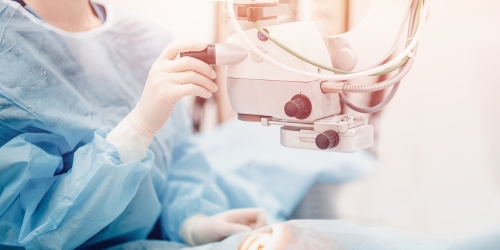All Categories
Featured
Extended exposure to ultraviolet (UV) rays can lead to various eye conditions, some of which may result in long-term damage or vision loss. Whether you're outdoors on a warm beach or taking a stroll on an overcast day, comprehending how UV rays impact your eyes and discovering how to secure them is vital for preserving healthy vision.
What Are UV Rays and How Do They Effect the Eyes? UV rays are a form of unseen radiation discharged by the sunlight. There are three sorts of UV rays:
UVA Rays: These penetrate deeply right into the skin and eyes, adding to long-term damage. UVB Rays: These are a lot more extreme and can create surface-level injury, such as sunburn or corneal damages. UVC Rays: These are one of the most damaging however are absorbed by the Planet's environment and seldom pose a straight danger. Both UVA and UVB rays can damage various parts of the eye, consisting of the cornea, lens, and retina.
Short-Term Results of UV Direct Exposure. Even a brief period of intense UV exposure can damage your eyes. An usual problem resulting from this is photokeratitis, often defined as "sunburn of the eye." Signs include:
Unpleasant or red eyes. Level of sensitivity to light. Extreme tearing. Temporary fuzzy vision. Photokeratitis is generally temporary however functions as a pointer of the immediate dangers of UV radiation.
Long-Term Effects of UV Direct Exposure. Collective UV exposure in time can cause a number of extreme eye problems, consisting of:

Cataracts: UV rays speed up the development of cataracts, a problem where the lens of the eye comes to be over cast, causing vision problems. Cataracts are a leading reason for blindness worldwide.
Macular Degeneration: The macula, a component of the retina liable for main vision, can be damaged by extended UV direct exposure, boosting the danger of age-related macular deterioration (AMD)
Pterygium: Commonly called "surfer's eye," this condition entails a development of tissue on the white part of the eye, which can prolong over the cornea and impair vision.
Pinguecula: UV direct exposure can trigger yellowish places to develop on the conjunctiva, leading to irritation and discomfort.
Skin Cancer Cells Around the Eyes: The delicate skin surrounding the eyes is extremely susceptible to UV radiation, boosting the threat of basal and squamous cell cancer.
Protecting Your Eyes from UV Damage. The good news is that safeguarding your eyes from UV radiation is straightforward and effective. Here are some essential tips:
Put On UV-Blocking Sunglasses. Choose sunglasses that block 100% of UVA and UVB rays. Look for tags indicating "UV 400" protection. Wrap-around styles offer extra protection, avoiding UV rays from getting in from the sides.
Utilize a Wide-Brimmed Hat. A hat with a large border can block almost 50% of UV rays, providing added protection for your eyes and the delicate skin around them.
Stay Clear Of Top Sun Hours. UV rays are greatest between 10 a.m. and 4 p.m. Reduce your outside direct exposure throughout these hours, or ensure you're sufficiently shielded if you require to be outside.
Protect Your Eyes Year-Round. UV rays exist year-round, also on gloomy or snowy days. Snow, sand, and water can mirror UV rays, heightening their effects. Make sunglasses a part of your day-to-day regimen, no matter of the period.
Consider UV-Blocking Contact Lenses. Lots of call lenses currently offer UV protection, which can be an additional protect when coupled with sunglasses.
Encourage Eye Security for Children. Children's eyes are extra susceptible to UV damage because their lenses are more clear, enabling even more UV light to get to the retina. Ensure they use sunglasses and hats when playing outdoors.
Set Up Normal Eye Examinations. Normal sees to an eye treatment expert are essential for monitoring your eye wellness. An eye doctor can spot very early signs of UV-related damages and advise options, such as prescription sunglasses or UV-blocking glasses customized to your demands.
Verdict. UV rays may be undetectable, but their influence on your eye health and wellness is very real. From momentary pain to long-lasting problems like cataracts and macular deterioration, the dangers of UV exposure are too substantial to disregard. By putting on UV-blocking sunglasses, restricting your direct exposure during peak hours, and organizing regular eye tests, you can shield your vision and appreciate the outdoors securely. Bear in mind, your eyes are among your most useful possessions-- take the essential steps to shield them from harmful UV rays today.
Latest Posts
Recognizing Roof Warranties: What Homeowners Must Know
Explore Cut Costs on Car Maintenance with Montclare Auto Repair’s Exclusive Deals
Selecting the Right Roofing System Shade: Influence On Power Efficiency
More
Latest Posts
Recognizing Roof Warranties: What Homeowners Must Know
Explore Cut Costs on Car Maintenance with Montclare Auto Repair’s Exclusive Deals
Selecting the Right Roofing System Shade: Influence On Power Efficiency